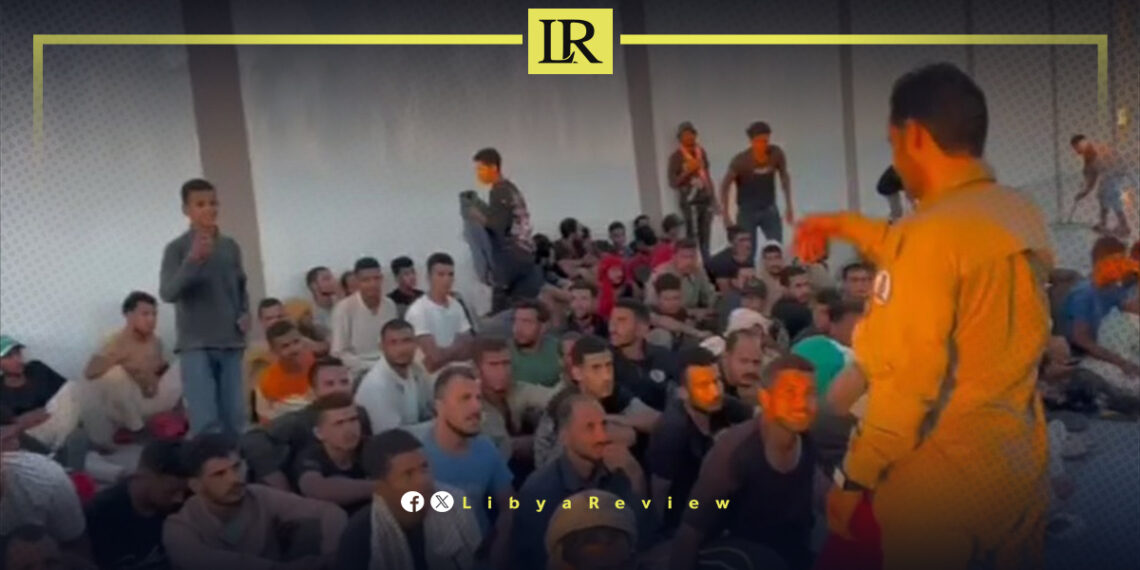Libya’s Anti-Illegal Immigration Agency has deported 97 undocumented Egyptian migrants through the Al-Emsaad land border crossing, following the completion of all necessary legal procedures.
The operation was conducted under the direct supervision of Major General Ibrahim Larabed, Head of the Al-Butnan Branch of the agency.
In a brief statement, the agency reaffirmed its firm commitment to implementing strict measures aimed at identifying violators, dismantling smuggling networks, and safeguarding Libya’s national security and sovereignty.
This move reflects ongoing efforts by Libyan authorities to control irregular migration routes, which often pass through the country on their way to Europe. Libya remains one of the main transit points for migrants seeking to cross the Mediterranean, with many falling prey to traffickers and dangerous conditions.
The agency reiterated that similar operations will continue in coordination with relevant security bodies to combat illegal immigration across Libyan territory.
Libya has been in chaos since a NATO-backed uprising toppled longtime leader Muammar Gaddafi in 2011. The county has for years been split between rival administrations.
Libya’s economy, heavily reliant on oil, has suffered due to the ongoing conflict. The instability has led to fluctuations in oil production and prices, impacting the global oil market and Libya’s economy.
The conflict has led to a significant humanitarian crisis in Libya, with thousands of people killed, and many more displaced. Migrants and refugees using Libya as a transit point to Europe have also faced dire conditions.
The planned elections for December 2021 were delayed due to disagreements over election laws and the eligibility of certain candidates. This delay has raised concerns about the feasibility of a peaceful political transition.
Despite the ceasefire, security remains a significant concern with sporadic fighting and the presence of mercenaries and foreign fighters. The unification of the military and the removal of foreign forces are crucial challenges.


